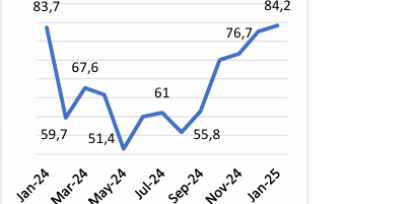
First Stock in the World: Vereenigde Oost-Indische Compagnie (VOC) as a Pioneer of Investment Instruments
The history of the world's first shares began with the Vereenigde Oost-Indische Compagnie (VOC), a Dutch company which was a pioneer in using shares as an investment instrument. The founding of the VOC and its innovations in stock issuance provided the foundation for the modern stock market we know today.
Background to the Establishment of the VOC
The VOC was founded in 1602 with the main aim of controlling the spice trade from Asia to Europe. At that time, the spice trade was very profitable, but it also required large capital to finance expeditions, ship construction, and establish trading posts in Asia. To meet this large capital requirement, the VOC introduced a new way of raising funds: issuing shares to the public.
First Share Issuance
VOC was the first company to issue shares to the public, giving the general public the opportunity to become part of company ownership. These shares are sold to investors, who are then entitled to a share of the company's profits in the form of dividends. Thus, for the first time in history, the general public could participate in the profits of large corporations through stock ownership.
Amsterdam Stock Exchange
To facilitate stock trading, the Amsterdam Stock Exchange was established as the world's first stock exchange. This is where VOC shares are traded, allowing investors to buy and sell their shares. This exchange not only creates a secondary market for share trading but also increases the liquidity and investment attractiveness of VOC shares.
How VOC Shares Work
VOC shares give the holder the right to dividends from company profits. Additionally, these shares can be traded on the Amsterdam Stock Exchange, giving investors the flexibility to sell their shares and realize profits. This model created the basis for the modern stock market system, where company shares are traded freely and share prices are determined by supply and demand in the market.
Impact and Innovation
1. Creation of the Stock Exchange: The Amsterdam Stock Exchange became a model for stock exchanges around the world. The stock exchange concept allows for more organized and transparent stock trading.
2. Investment Diversification: With stocks, investors can spread their risk by investing in various companies. This reduces overall risk and increases profit potential.
3. Efficient Capital Raising: Issuing shares allows companies like VOC to raise large amounts of funds without having to rely on bank loans, opening up greater expansion opportunities.
4. Public Participation in the Economy: Stocks provide the general public with the opportunity to participate in economic growth and the profits of large corporations, creating broader involvement in the economy.
Conclusion
The world's first stock issuance by the VOC was a revolutionary innovation that changed the way companies raised capital and how society participated in the economy. The VOC as a pioneer in the use of shares as an investment instrument paved the way for the modern stock market and created a more efficient and inclusive system for trading and investment. By understanding this history, we can better appreciate the development and importance of the stock market in today's global economy.




 Back to Home
Back to Home








